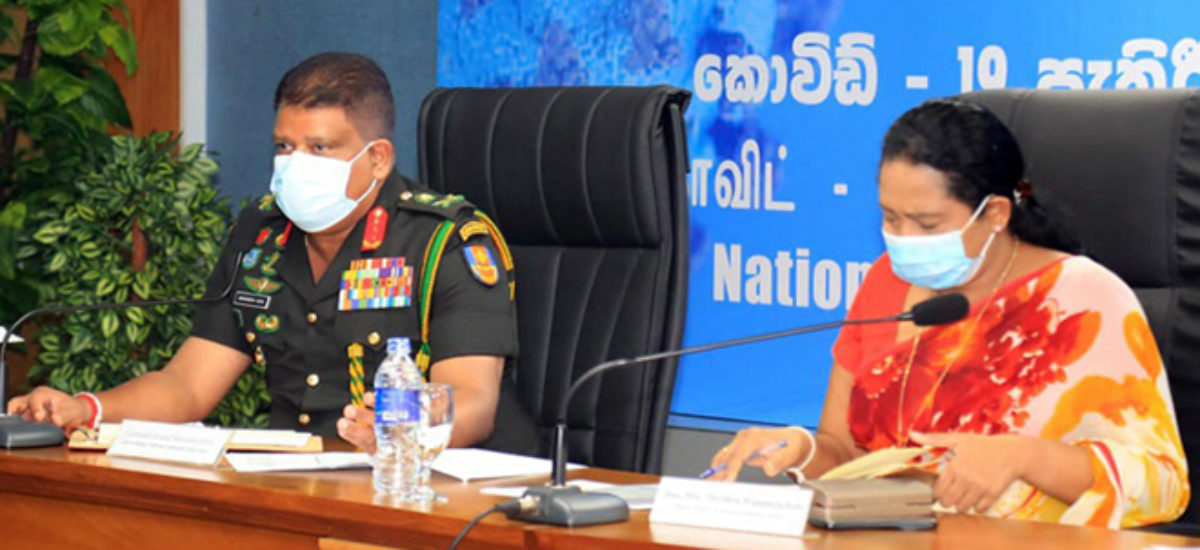Photo courtesy of Sri Lanka Army
At the beginning of the pandemic, given the unexpected nature of the outbreak and lack of scientific understanding, many countries including Sri Lanka opted for temporary, ad-hoc public measures that included temporary lockdowns with weekly re-evaluations. However, as we mark more than one year into the pandemic, many countries who have had success in controlling the disease have invested in long term plans for pandemic control. Their success is tied heavily to their dedication to investing in long term plans and executing these plans incorporating the evolving factors of the pandemic. Examples include New Zealand, Vietnam, Australia and Taiwan. Even amidst the surge of new variants, these countries are more poised for decisive action than many others.
Sri Lanka, however, remains in the ad-hoc public health measure phase despite requests and analysis from healthcare workers, public health experts and scientists, essentially pleading the government to invest in a long term plan.
Lack of an effectively communicated long term plan is poor pandemic response policy, directly resulting in increasing case numbers and increase in deaths. These deaths include COVID-19 deaths and eventual non-COVID-19 deaths that are caused by limited access to healthcare and overwhelming of the health system. Additionally, lack of a long term plan has contributed heavily to pandemic fatigue among the public and the credibility of the public health authorities and public health measures is being questioned, creating breeding grounds for harmful misinformation and disinformation.
Sri Lanka is already facing consequences of not having a long term plan, including short sighted policies of reducing testing coupled with easing of public health measures during April New Year that resulted in a surge of cases and deaths. Even then the government’s response was delayed. We are more than a month into the ad-hoc public measures, weekly re-evaluations coupled with communication blunders and the number of cases has not dropped. I would like to say we are at crossroads but alarmingly we are beyond crossroads and have taken the wrong path. We have reduced testing; government authorities publicly question the validity of their own data; and without strengthening the capacity for testing, we are aiming for seemingly a privileged travelers only approach, allowing tourists who can afford it to enter the country using a bubble system that has clearly failed. Challenges impacting our vaccination owing to global vaccine inequity and the privileged exploiting the system and lack of competency have also been points of concern for citizens. Last week it was reported that the delta variant – a variant that has highest transmissibility, reported to impact the youth more and has a higher mortality rate – is present in the community.
These are stark warning signs that indicate Sri Lanka is overdue for a long term plan to address the pandemic. Thus, to put it simply, we need to invest in a long term pandemic response plan politically and financially.
Why? A long term plan will give us an opportunity to chart a path forward considering both short and long term social and health challenges, including all factors impacting disease spread such as viral evolution, population immunization rate and changes in our behavior (both voluntary and involuntary). A long term plan also will help the government reduce its communication blunders, giving it time to prepare a desperately needed communication game plan that will help to reduce public anxiety, reduce pandemic fatigue and most importantly allow the public to get behind government’s efforts via increased awareness. Finally, knowing that the virus is evolving, it will give the government more space to prepare for eventualities of other variants, collaborate and coordinate regionally, prepare for socio-economic challenges impacting the vulnerable, without being blindsided by the latest variant of concern. Overall, a long term strategy that plans ahead at least for the next three to six months should be our only path forward if we are to improve our current approach that resembles putting out campfires while the forest is burning.
For a long term plan to be effective, as noted by so many experts, we need to invest in our testing focusing on a test, trace and isolate strategy; invest in our health system specifically building capacity of ICUs and essential supplies; invest in making the vaccination coverage targets clearer with improved intra-institutional communication; have a public target of number of COVID-19 cases per 100 people that we aim to reach; not apply public health measures based on privilege or ethnicity or any other identities; address corruption by the political elite, perhaps pre-emptively, where political allies are made aware of the importance of leading by example and that law will be implemented regardless of status. While this list is not exhaustive and needs further contextualization, this could be a very effective starting point. Finally, it is crucial that we communicate the long term plan effectively to the public – learn from the recent mishaps and invest more in communication! Although the president reportedly requested better communication, without a long term plan these efforts tend to fizzle out and die, as they have before.
All public health measures, including disease prevention and eradication, are centered on the premise of kindness and public welfare. Thus, it is crucial that we incorporate those values to our response and move away from ineffective, overtly militaristic gestures that dehumanize and humiliate communities. Finally, as a middle income country, investing in a long term plan is perhaps the most economically sound approach that can signal to the world that we have an approach to the pandemic that is reliable, measurable and transparent, reducing doubts over safety in Sri Lanka. It is past the time to prioritize meaningfully investing in a long term plan for the pandemic focused on our health system. Although obvious, it is worth noting that investing in the well-being of the population is a generational investment in the future of our country and not an investment risk.
The author is formerly a Policy Associate at the Center for Policy Impact at the Duke Global Health Institute and is currently a Ph.D. candidate focusing on global health policy at McGill University. He tweets at @ShashikaLB


